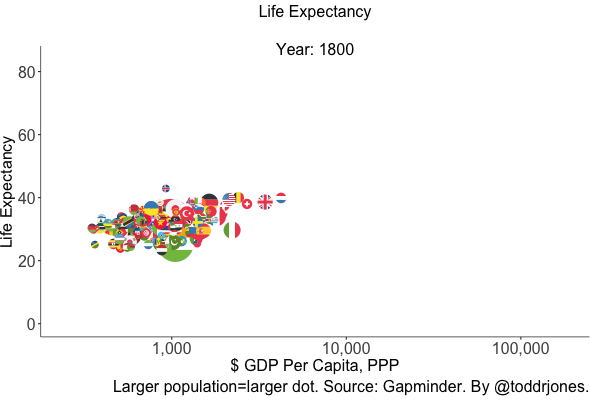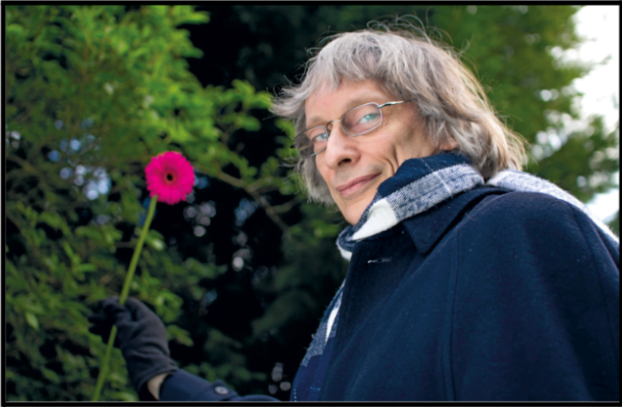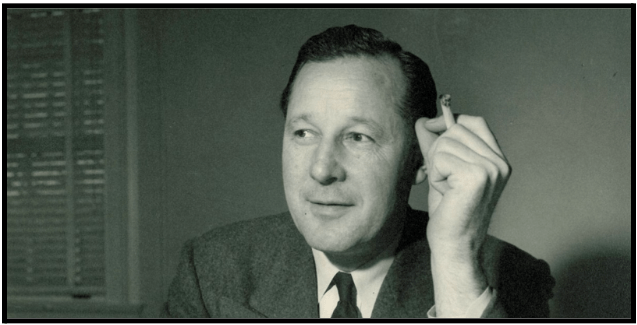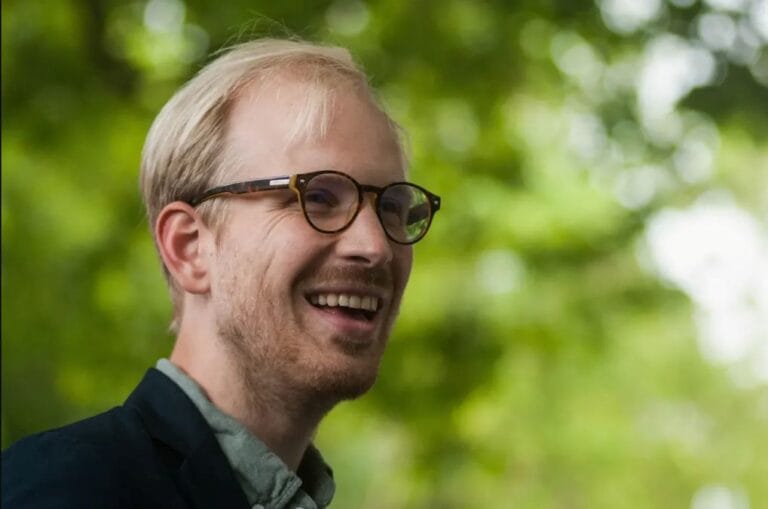Our species is unique: we connect with strangers to solve problems. Rather than complain and forecast doom, let’s work together to build a better world.
Talking Big Ideas.
“The possibilities that lie in the future are infinite. When I say ‘It is our duty to remain optimists,’ this includes not only the openness of the future but also that which all of us contribute to it by everything we do: we are all responsible for what the future holds in store. Thus it is our duty, not to prophesy evil but, rather, to fight for a better world.”
~ Karl Popper, The Myth of the Framework
Maryrose and I are enjoying this week unplugged in Cabo for our babymoon.
In honor of David Deutsch’s recent birthday, I’m republishing my essay We Are Problem Solvers, orginially delivered as a keynote to Colorado entrepreneurs. Deutsch is an Oxford physicist, the author of two mind-bending books on the universe, and is – according to economist Tyler Cowen – “the maximum philosopher of freedom, in a sense with no rival.”
Deutsch extends the insights of John Stuart Mill, Karl Popper, Baruch Spinoza, and other giants of philosophy into the realm of physics and the multiverse. He is a rational optimist who believes humans can build an infinitely more abundant world.
I encourage you to watch his TED talks, listen to his Conversation with Tyler, and add The Beginning of Infinity Part 1 and Part 2 to your podcast playlist.
***
What sort of impression do you leave on people?
After someone hangs out with you, what do they think about you? How do you make them feel? If you could wave a magic wand and create the ideal – the ideal impact you have on others, what would it be?
There’s a lovely anecdote in the memoirs of Lady Randolph Churchill. She was born in Brooklyn but became a British icon who held sway with the most powerful people in the world, including her son Winston Churchill.
Lady Churchill writes about dining separately with these two guys:
William Gladstone and Benjamin Disraeli.
They were two of the most powerful people of her time, both serving multiple stints as Prime Minister of the United Kingdom. Lady Churchill writes:
When I left the dining room after sitting next to Gladstone, I thought he was the cleverest man in England. But when I sat next to Disraeli, I left feeling that I was the cleverest woman.
Guess whose company she preferred?
We live in a world filled with Gladstones – people who focus on trying to impress others. For most of us, it’s our default setting. When we show up to an event, when we’re having a conversation, when we’re at a networking event, we tend to talk about ourselves and the things that interest us. We try to show people how smart and high-status we are.
Lady Churchill says it’s magical when we rise above our self-interested desire to showcase our importance and instead help others to feel important.
Disraeli’s genius was his ability to do this. To deeply connect with people and make them feel valued – and even help empower them to realize their full potential.
Years ago, I had the pleasure of meeting a Disraeli at a networking event similar to the one we’re at now, and it changed my life.
Growing up I was not as entrepreneurial and motivated as Maryrose. It took me five and a half years to graduate from college. And then I moved back in with my parents and got a job at a pyramid scheme selling stuff door-to-door for straight commission. Eventually, I made a friend who got hired in Washington D.C., and he invited me to crash on his couch for the summer.
I showed up to D.C. with no job, no money, and no hard skills or knowledge. I was fraught with insecurity. At my first networking event, everyone I talked to was a Gladstone. They told me about the amazing jobs they had, the incredible schools they went to, and the awesome projects they were working on. I left with my tail between my legs, thinking “How can I possibly make it in D.C.?”
I was already dejected walking into my second networking event. But after chatting with a few Gladstones, a guy named David Kirby walked up to me. He asked me thoughtful questions and expressed genuine interest in my answers. He was excited and introduced me to people, and assured me that as long as I keep at it I’ll find a good job in D.C. soon.
David Kirby delivering a keynote presentation, many years after our first meeting.
I called my friend Aaron Day, a Disraeli with a D.C. background, and he gave me even more confidence. The story I told myself about myself began to change. I started thinking, “I can do this!”
And I did. I stayed in D.C. for the next 15 years. I built a network. I built skills and a business. I wonder sometimes if David hadn’t come up to me at that networking event, and Aaron hadn’t been there to offer his support, would my path have been different?
Would I have left D.C. and never started my business? And if so, how much less fulfillment would I have had over the past 15 years? How much less value would I have created?
Throughout your life, you will have many conversations with other people. During every one of them, you get to choose how you act. I encourage you to choose to be a Disraeli. Rise up and resist your inner Gladstone.
You will deepen your connections and your impact.
This is difficult to do. I struggle with it, and I imagine you do as well. Yet when you pull it off, when you give someone your full and non-judgmental attention, it can be incredibly powerful.
And speaking of power, let me ask you this: What makes us so powerful?
I don’t mean just us in this room. I mean us as a species. What is the one thing that separates Sapiens from everything else?
The answer to this is fascinating.
Let’s start with a thought experiment. Imagine for a moment you’re standing on the banks of your favorite Colorado river.
You’re silently immersed in nature when suddenly your mom shows up. She’s standing next to you, on your left, shoulders touching, facing the same direction.
And next to her, just to her left, her mother materializes. And so on down the line. You turn your head and see all your mothers in an unbroken chain going upstream into the mountains. To the dawn of time.
Travel 18 miles along this line of mothers. That’s the first mom to harness the power of fire. 18 miles away!
Just 2 miles down the line from you is your first anatomically modern mom. She’s quite similar to you in intelligence and appearance.
How far down the line is your first mom who walked the planet without any other human species around? (Sapiens is just one of many human species that have existed. There have been at least a dozen others.) She’s just a couple of football fields away from you! You can see her from where you’re standing.
For the vast majority of our history, Sapiens co-existed with other humans.
How did our species take over? What is our superpower that allowed us to do this?
We weren’t stronger and we probably weren’t smarter. Neanderthals had art and rituals, they built boats and sailed the seas. They had bigger brains than us, which doesn’t mean they were smarter, but they were certainly intelligent.
How did we conquer the planet? There are many factors, of course, and if we had to smash them together into a single word we could say . . . stories.
We conquered with stories. Because stories connected us with strangers. We alone have this ability.
“No other species of ape can encounter strangers without trying to kill them.”
~ Matt Ridley, The Rational Optimist
Our species cannot resist connecting with strangers. Even 10,000 years ago we wore jewelry that demonstrated detailed trading among strangers. We love to exchange ideas, goods, services – and stories.
Picture 50 Sapiens cresting a hill and coming across 50 Neanderthals. If they fight, I imagine the Neanderthals win.
But put a symbol on a flag. Instill meaning into that symbol. Have that meaning be inculcated into thousands of Sapiens, all rallying together around a shared story.
When 5,000 Sapiens crest the hill and come upon 50 Neanderthals, well, it’s game over Neanderthals.
Every mom to your left, all the way down the line, lived in a world filled with stories. Epic fire gods and protective Earth mothers. Mysterious underworlds and supernatural heroes. They were immersed in myths and symbols. These stories guided and controlled their lives.
We are the same way today. Our world remains a mass construction of interconnected stories.
The historian Yuval Harari writes about how the United Nations told Libya to respect the human rights of its citizens. Even though, as he puts it, the United Nations, Libya, and human rights are all just figments of our collective imaginations.
They’re stories. We made them up.
Countries aren’t real in the way your chairs are real. They’re stories we invented, just like brands, corporations, laws, money, myths, non-profits, rights, traditions, trademarks, and trends.
The businesses you’ve built. The schools you’ve attended. The organization where you currently work. They’re modern fire gods.
We obsess and yearn for stories. Kids invent worlds and demand bedtime stories. We binge TV shows, movies, books, and games.
Stories are weird. They exist in a different place from our physical world.
We all understand that we live in two different worlds. The outside physical world and the inside mental world.
The philosopher Karl Popper said there’s a third world as well. And I think it’s the most fascinating of all. He called it World 3.
Here’s an analogy. Imagine you’re on an epic mountain adventure with a loved one. You both head out to summit a handful of Colorado 14ers in one push.

World 1 is the physical world around you — the tangible, touchable stuff. Your shoes, jacket, and backpack. The actual landscape of mountains and rivers as well as the plants, animals, and other people you come across.
Notice the excitement you feel trekking through the landscape. The wonder you experience gazing at the sunset and the anticipated thrill of summiting a distant peak. The love you feel for your partner and the ache in your back you ignore. All of this is happening within World 2.
Now imagine your partner pulls out a map from her pocket that shows the terrain. This map, Popper would say, is akin to science. It has embedded into it the collective wisdom of numerous people, many of whom likely no longer exist in World 1.
You have a book in your backpack that gives suggestions on the best way to navigate the map. This guidance is akin to philosophy. And the drawings inside are art.
Science, philosophy, and art don’t disappear when any particular individual dies. They have been uploaded into a collective brain that transcends all of our isolated, impermanent World 2s.
This is World 3. A cumulative culture that houses the theoretical products of our collective thoughts, collaborations, and innovations – including the stories that shape and guide us.
World 3 empowers us to benefit from the compounding wisdom of our species, going back to the dawn of time.
Perhaps it’s more accurate to say that our superpower is World 3.
There’s a renowned economist from Zambia named Dambisa Moyo.
She says we are facing serious problems right now. Many of them she’s experienced firsthand. But Moyo says when we come together and collaborate, we can solve these problems. Even the huge ones.
According to Moyo, the power of our collective ingenuity trumps the obstacles we face. As long as we are free to release our creativity and collaborate together, we can find innovative solutions to even the toughest problems.
Problems are everywhere. Life is essentially about solving them. Your organization is designed to solve problems. When we contribute to World 3, our ideas become part of the collective brain, building upon the ideas of countless minds before us.
World 3 means that our ideas are constantly mixing together with others. As the author Matt Ridley says, when ideas have sex, innovation is born. Innovation allows us to solve previously unsolvable problems.
The physicist David Deutsch explains that the collective intelligence we build in World 3 offers us unlimited potential for creating a world of abundance.
We’ve already begun building a new science and philosophy of progress. And because we have an infinite amount of ways to smash ideas together and innovate, we have an infinite amount of ways we can continue to grow and make progress as a species.
As Deutsch says, this means we can solve any problem that doesn’t violate the laws of physics. Virtually all of the challenges we think are unsolvable can be solved by working together and coming up with better ideas and explanations.
Sapiens work together – across time and space – to solve problems.
Let’s return for a moment to our river analogy.
Look again at your long line of ancestors and marvel at their ability to work together and build solutions to problems.
They learned how to use fire and electricity. They built complex languages and cities, an International Space Station, and massive electron smashers. They went to the moon, eradicated smallpox, mapped our genome, harnessed clean nuclear energy, and fixed a giant hole in the ozone layer!
There’s a story many of us believe that says problems are getting worse not better, morality is in decline, and soon everything will collapse.
This story has been spreading for thousands of years. And it’s just not true. The reality is that we are still here, better than ever, and we work together to make incredible progress on even the biggest problems:

Collective intelligence compounds in World 3 so our capabilities continually grow. It’s not that our individual brains are much smarter than our ancestors from 10,000 years ago; it’s that our collective brain is exponentially more intelligent and constantly improving.
This is why life is so much more abundant today than just a few generations ago.
“On what principle is it, that when we see nothing but improvement behind us, we are to expect nothing but deterioration before us?” ~ Thomas Macaulay (writing in 1830)
Listen to the news and you may think we are at the end of history. But it is far more likely we are at the beginning.
The human species Homo Erectus lived for about 2 million years. Sapiens have been around for only a tenth of that: about 200,000 years.
Standing back at our river, let’s turn and look downstream.
Your daughter shows up next to you. And then her daughter appears. You see an unbroken line of all your daughters to come.
If our species continues as long as Homo Erectus, your line of descendants extends for nine times as long as your ancestors. What incredible things will they build? What problems will they figure out how to solve – thanks in part to the contributions that you and everyone else before them uploads into World 3?
In the next few generations, our descendants may cure today’s most deadly diseases: heart disease, cancer, Alzheimer’s, and diabetes. We see how they can build clean fusion energy plants and reverse climate change and biological aging.
A little further downstream we see how they can erect massive space elevators, terraform Mars and Venus, and build a Dyson sphere around the sun to provide unlimited clean energy.
Even further downstream, we see them building a stellar engine that moves our entire solar system out of the way of future gamma-ray bursts and supernova explosions:
Credible scientists and philosophers are already uploading blueprints on space elevators and stellar engines into World 3. These ideas do not violate the law of physics; they’re possible. Our descendants may build them.
How about all the things we cannot see?
Just as our cave-dwelling ancestors couldn’t fathom quantum computing and the Internet, we cannot fathom the vast majority of incredible ideas our daughters and sons will create in the future.
What are the things our descendants will build that blow away stellar engines?
This is our true superpower:
Our collective intelligence compounds as we connect and work together – across time and space – to solve problems.
Which brings us to Henry George.
In the late 1800s he published a book called Social Problems, uploading ideas into World 3 that were downloaded into my brain more than a century after his death.
To paraphrase my favorite passage:
Never imagine that you have no influence. Whoever you are, and wherever you may be right now, when you think – and when you build and connect – you shine a light that helps other people see and create better paths forward. You offer a flame from which more torches are lit. These torches in turn light others. You will never know how far your influence ultimately extends.
The work you do will help people in ways you’ll never know. Master your ability to build and connect and you will substantively increase your circle of influence.
In doing so, you will, in a very real way, leave a positive and lasting mark on the world.
All three of them.




